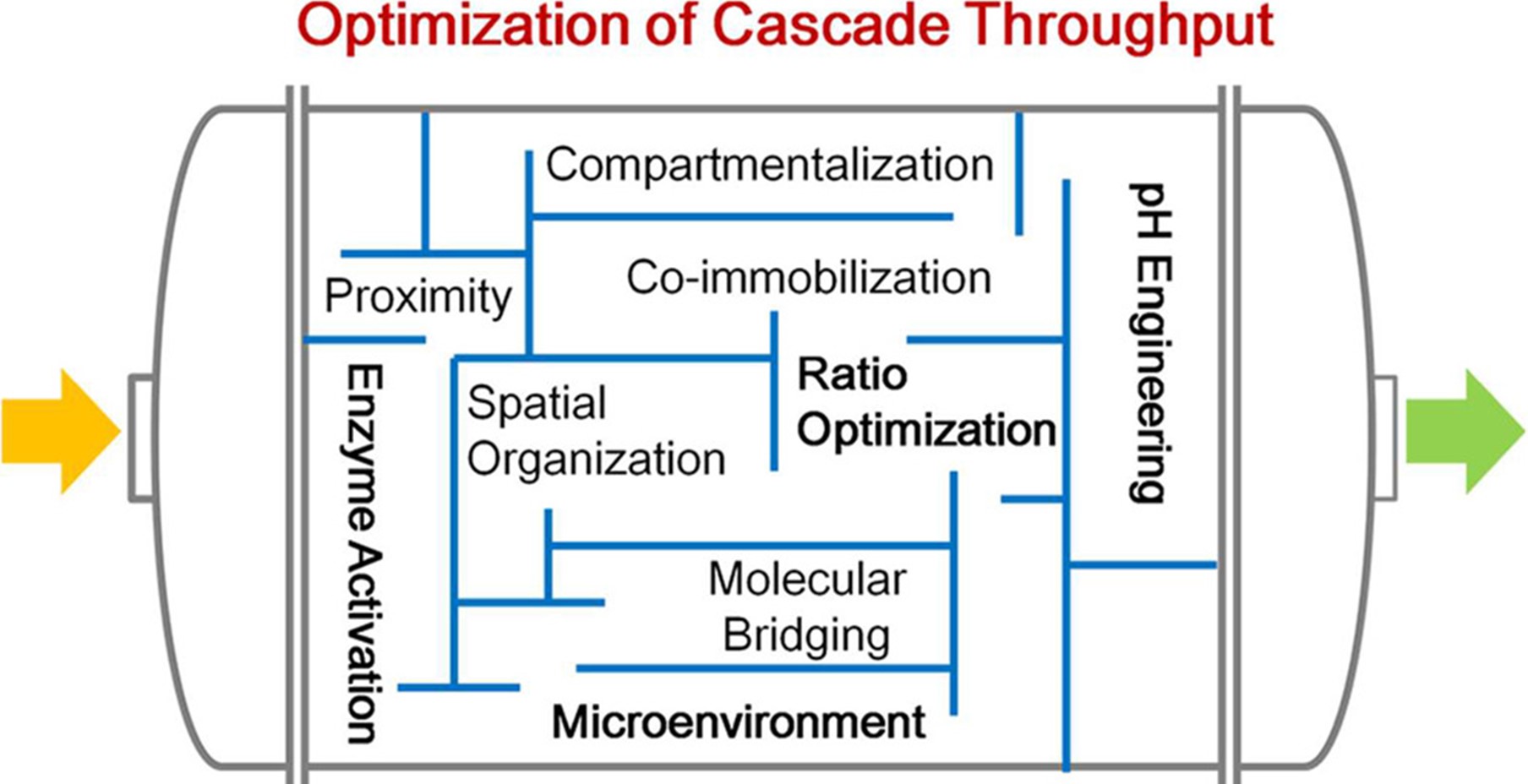EnzymoGenius™ revolutionizes enzymatic cascade optimization through a cutting-edge approach to rational design. Employing advanced techniques rooted in molecular biology and bioinformatics, our service propels the forefront of enzymatic engineering, unlocking novel pathways for a myriad of applications.
Overview
Enzyme cascade optimization through rational design is a strategic approach in synthetic biology aimed at enhancing enzymatic pathways for improved biochemical production. This method involves the systematic engineering of enzyme cascades through computational and bioinformatic analyses to rationally design optimal enzyme combinations and configurations. The process leverages insights from structural bioinformatics, protein engineering, and metabolic pathway analysis to enhance catalytic efficiency, substrate specificity, and overall pathway performance. Recent research progress in this field has demonstrated significant advancements, showcasing the successful implementation of rational design strategies to enhance the catalytic activity of specific enzymes within cascades. These achievements contribute to the development of tailored enzymatic systems for diverse applications, ranging from biomanufacturing to therapeutic interventions, thereby advancing the frontier of enzyme engineering in synthetic biology.
 Fig. 1 Toward rational design of high-efficiency enzyme cascades. (Zhang, Y, et al.,2017)
Fig. 1 Toward rational design of high-efficiency enzyme cascades. (Zhang, Y, et al.,2017)
Service Process
- Sequence Analysis and Identification
Scrutinizing genetic data to identify potential enzyme candidates with desired functionalities.
- Structural Modeling
Employing computational methods to predict the three-dimensional structures of selected enzymes, allowing for a comprehensive understanding of their catalytic mechanisms.
- Docking Simulations
Conducting in silico docking studies to evaluate the interactions between enzymes and substrates, providing insights into potential catalytic efficiencies.
- Optimization Algorithm Implementation
Employing state-of-the-art optimization algorithms to fine-tune enzymatic cascades, enhancing their overall performance.
- Experimental Validation
Translating computational predictions into reality through laboratory experiments, ensuring the functionality and efficiency of the optimized enzyme cascade.
Research Areas We Can Serve
Our expertise extends across a spectrum of research topics, catering to the diverse needs of scientific inquiry:
- Metabolic Engineering
Designing enzymatic pathways to optimize metabolic processes for enhanced product yields.
- Biocatalysis
Harnessing the power of enzymes for efficient and sustainable chemical transformations.
- Drug Discovery
Crafting enzyme cascades tailored for the synthesis of pharmaceutical intermediates.
- Environmental Biotechnology
Developing enzymatic solutions for pollution remediation and waste management.
Service Highlights
- Precision Engineering
Leveraging advanced computational tools for targeted optimization of enzyme cascades.
- Interdisciplinary Approach
Integrating molecular biology, bioinformatics, and computational modeling to deliver holistic solutions.
- Scalability
Adapting our methods for applications ranging from laboratory-scale experiments to industrial processes.
- Efficiency Enhancement
Maximizing the catalytic potential of enzymes for superior performance in diverse applications.
- Validation through Experimentation
Bridging the gap between computational predictions and practical implementation through rigorous laboratory testing.
EnzymoGenius™ stands at the forefront of enzymatic cascade optimization, offering tailored solutions for a spectrum of research domains. Our multidisciplinary approach, coupled with a commitment to precision and efficiency, positions us as a reliable partner in advancing the frontiers of enzymatic engineering. Contact us today to explore how we can elevate the efficiency of your enzyme cascades through rational design, offering tailored solutions for enhanced catalytic performance and productivity.
Reference
- Zhang, Y.; et al. Toward rational design of high-efficiency enzyme cascades. ACS Catalysis. 2017. 7(9): 6018–6027.

































 Fig. 1 Toward rational design of high-efficiency enzyme cascades. (Zhang, Y, et al.,2017)
Fig. 1 Toward rational design of high-efficiency enzyme cascades. (Zhang, Y, et al.,2017)